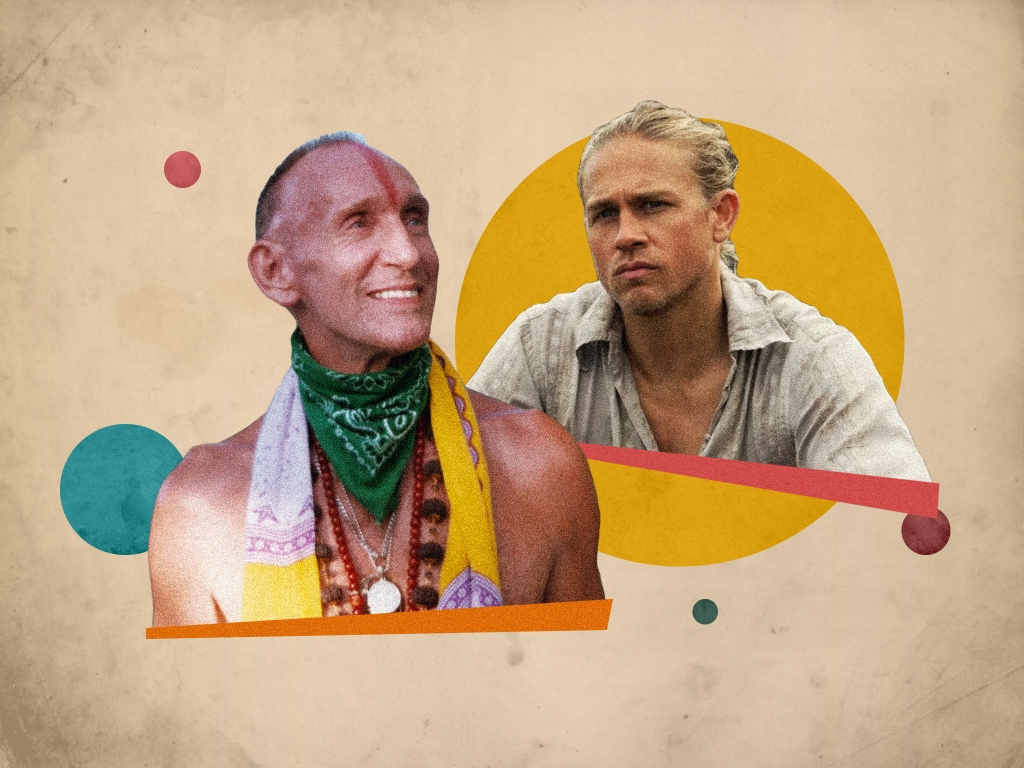
In the opening moments of the new Apple+ series Shantaram, Charlie Hunnam breaks out of prison the fast way. Not for him chipping away at a dank tunnel for 17 years like Tim Robbins in The Shawshank Redemption. He’s over the front wall and away before the guards in the machine gun towers even turn their heads. It’s an audacious, brazen escape, and at one o’clock on a July afternoon in 1980, it’s exactly how convicted bank robber Gregory David Roberts broke out of Melbourne’s Pentridge Prison. “If you’re planning an escape, you look for the place that’s least protected,” explains Roberts, now 70, at home in Jamaica. “They thought no one would be crazy enough to escape over the front wall.”
Today, Roberts looks more like a blissed-out holy man than either a bank robber or the bestselling author he became when Shantaram,an epic 936-page novel based on his own life, was published in 2003. It went on to sell more than 7 million copies worldwide. Greeting me topless except for a bright yellow and green scarf slung loosely around his neck, he still seems spry enough to scale a prison wall if it really came down to it. His hair is cropped short; the bright red streak of a tilaka splits his forehead in two. The Hindu marking, symbolising a spiritual third eye, goes well with his beatific smile.
It’s hard to overstate the transformative impact India had on Roberts as a young fugitive. He arrived in Mumbai, then called Bombay, on a forged passport shortly after his daring prison escape. He expected to stay for two days before travelling on to Germany. In the end, he was there for eight years, living for 18 months in the slums and establishing a medical clinic before finding himself drawn inexorably into the treacherous world of organised crime. Shantaram is a savage journey into the Indian underworld, but it’s a spiritual quest for redemption too. “That’s a reflection of the life I was in,” explains Roberts. “While I was committing crimes with a branch of the South Bombay mafia, I found that gangsters are very superstitious. They’d say to me, ‘I just met this holy man up in the hills and he gave me an amulet to protect me from bullets’. I’d get on my bike and go and find these different holy people, bring them hash and fruit, and from each one gain some little insight.”